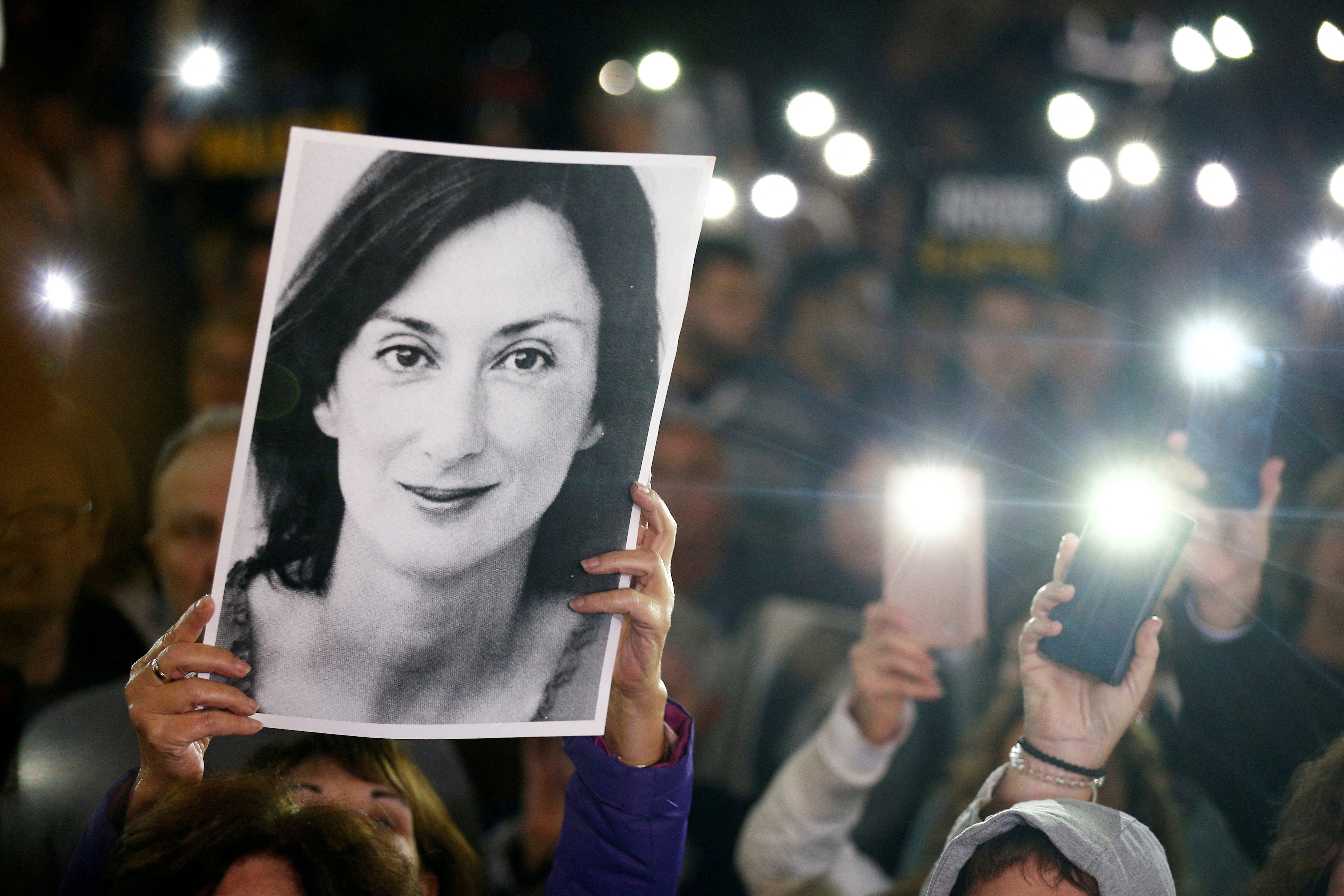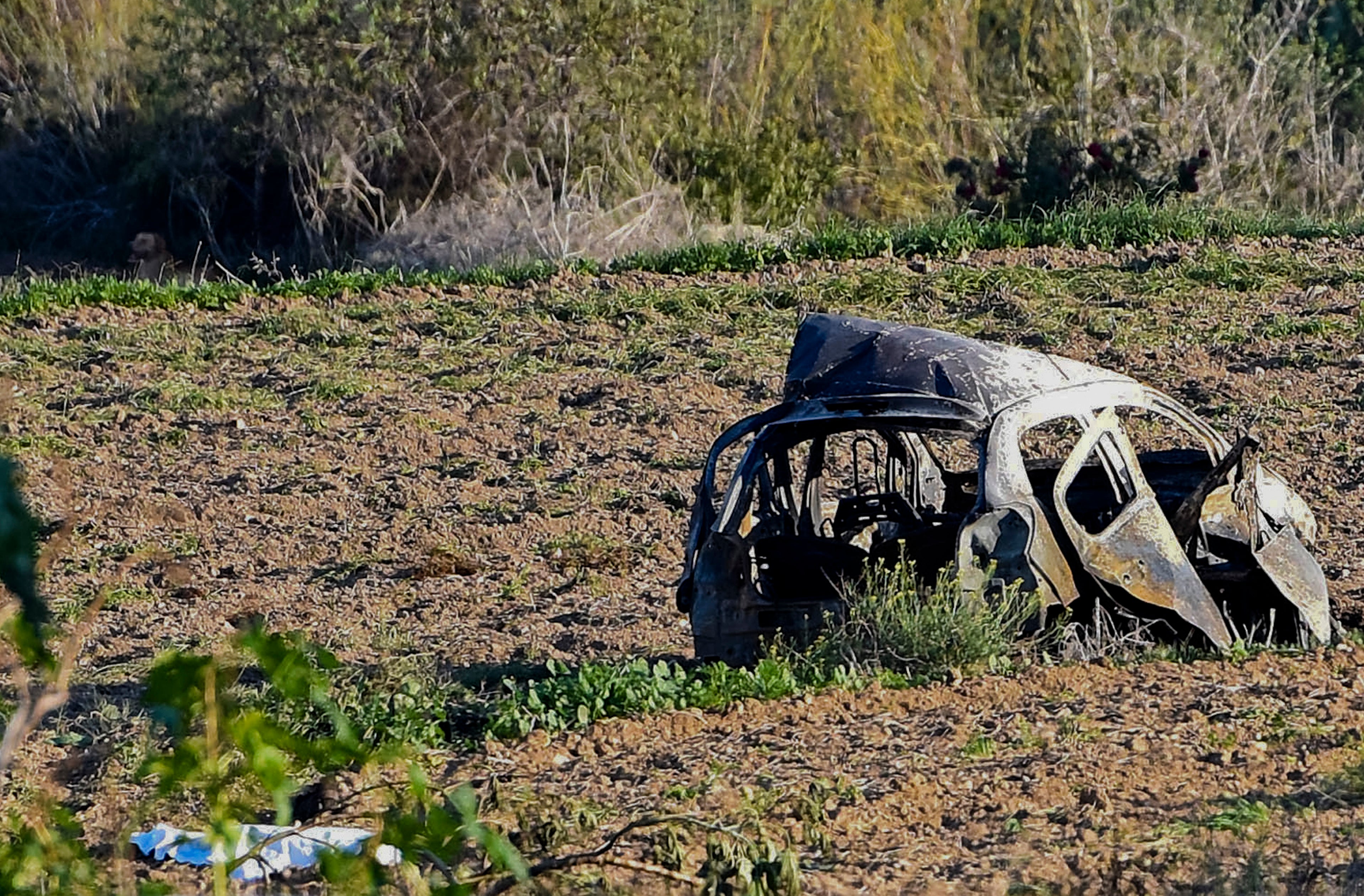Trial begins for car-bomb assassination of Maltese journalist Daphne Caruana Galizia
The first trial for the car-bomb assassination of Maltese journalist Daphne Caruana Galizia

Your support helps us to tell the story
From reproductive rights to climate change to Big Tech, The Independent is on the ground when the story is developing. Whether it's investigating the financials of Elon Musk's pro-Trump PAC or producing our latest documentary, 'The A Word', which shines a light on the American women fighting for reproductive rights, we know how important it is to parse out the facts from the messaging.
At such a critical moment in US history, we need reporters on the ground. Your donation allows us to keep sending journalists to speak to both sides of the story.
The Independent is trusted by Americans across the entire political spectrum. And unlike many other quality news outlets, we choose not to lock Americans out of our reporting and analysis with paywalls. We believe quality journalism should be available to everyone, paid for by those who can afford it.
Your support makes all the difference.The trial of two brothers charged in the car-bomb assassination of a Maltese journalist who investigated corruption in the tiny island nation began on Friday, nearly five years after the slaying that sent shockwaves across Europe.
George Degiorgio, 59, and Alfred Degiorgio, 57, are charged with having set the bomb that blew up Daphne Caruana Galizia’s car as she drove near her home on Oct. 16, 2017.
Prosecutors allege they were hired by a top Maltese businessman with government ties. That businessman has been charged and will be tried separately.
The Degiorgio brothers have denied the charges. A third suspect, Vincent Muscat, avoided a trial after earlier changing his plea to guilty. Muscat is serving a 15-year sentence.
In a Valletta courtroom Friday, Alfred Degiorgio pleaded not guilty while his brother declared that he had nothing to say. The court interpreted that as a not-guilty plea.
George Degiorgio has promised to implicate others in the plot to assassinate Caruana Galizia. The brothers had unsuccessfully tried to negotiate a pardon in exchange for naming bigger alleged conspirators, including a minister whose identity hasn't been revealed.

The bomb had been placed under the driver's seat and the explosion was powerful enough to send the car's wreckage flying over a wall and onto a field.
A top Maltese investigative journalist, Caruana Galizia, 53, had written extensively on her website “Running Commentary” about suspected corruption in political and business circles in the Mediterranean island nation, an attractive financial haven.
Among her targets were people in then-Prime Minister Joseph Muscat’s inner circle whom she accused of having offshore accounts in tax havens disclosed in the Panama Papers leak. But she also targeted the opposition. She was often sued by those she wrote about.
Two weeks before her death, she had filed a police report saying she was receiving threats, according to news reports at the time.

The arrest of a top businessman with connections to top government officials two years after the murder sparked a series of mass protests in the country, forcing Muscat to resign.
Yorgen Fenech was indicted in 2019 for alleged complicity in the slaying, by either ordering or instigating the commission of the crime, inciting another to commit the crime or by promising to give a reward after the fact. He was also indicted for conspiracy to commit murder. Fenech has entered not-guilty pleas to all charges.
No date has been set for his trial.
A self-confessed middleman, taxi driver Melvin Theuma, was granted a presidential pardon in 2019 in exchange for testimony against Fenech and the other alleged plotters. Two men, Jamie Vella and Robert Agius, have been charged with supplying the bomb, but their trial has not yet begun.
A 2021 public inquiry report found that the Maltese state “has to bear responsibility” for Caruana Galizia’s murder because of the culture of impunity that emanated from the highest levels of government.
The Council of Europe’s commissioner for human rights, Dunja Mijatović, has decried the “lack of effective results in establishing accountability five years later.”
In a letter to the current prime minister, Robert Abela, the commissioner expressed the need for urgency in protecting journalists in Malta and cited ongoing defamation cases against Caruana-Galizia’s family.